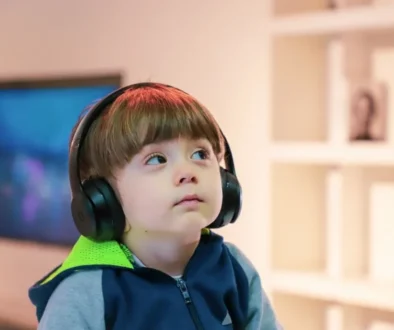What Does Your Child’s Autism Prognosis Mean?
Did you know that autism can be diagnosed as early as 2 years old? While that may seem young, the earlier a child receives a diagnosis, the faster they receive proper treatment and support.
If your child recently received an autism diagnosis, you might be feeling overwhelmed. Take heart in the fact that they are already off to a better start than autistic adults that are just learning their diagnoses.
This puts your child in the best position for a favorable autism prognosis. Autistic children who have early intervention see marked improvements in many areas.
While your child is unique in their diagnosis, there are a few ways to know what lies ahead in their journey. Read along to learn more about autism prognoses and how to best support your child.
Levels of Autism
It’s important to understand that Autism, or Autism Spectrum Disorder, is a spectrum. It’s difficult to know the prognosis without getting a diagnosis of the severity for your child.
The reality of autism is that not every individual experiences it the same way. Some symptoms may be mild, while others are severe.
Not every child develops the same capabilities or behavioral strategies. So, how they’ll function as an adult is hard to gauge.
However, the best thing you can do for them is to build a solid support team around them. This team doesn’t differ very much from one level to the next, but the amount of support does.
Mild Autism Prognosis
Someone with a mild form of autism requires less long-term support than others. They probably have difficulty understanding social cues and behaviors. Often, they experience stress with transitions and have rigid tendencies.
These are more manageable symptoms. The prognosis for someone with mild autism is very different than someone with severe autism.
Someone with mild autism won’t have as much difficulty in school or holding a full-time job. Their relationships won’t be identical to neurotypical ones, but they’re still fully capable of having them.
Their daily life won’t look that much different than someone who doesn’t have autism. It doesn’t mean that it’s easy for them, but, with the right support, they’ll live very successful lives.
Therapy and life coaching help those with mild autism learn how to better navigate social situations. A behavioral therapist teaches and encourages communication. They offer solutions to repetitive behaviors and give better insight into the brain.
This kind of treatment is life-changing. Learning coping mechanisms helps your child self-regulate and merge well into society.
Moderate Autism Prognosis
If your child has received a level 2, or moderate, autism diagnosis, they require more substantial support. They likely exhibit the traits of mild autism but to a greater degree.
People with moderate autism have abnormal social behaviors, such as walking away in the middle of a conversation. They usually have fixations on certain interests or topics and have difficulty talking about anything else.
People with mild autism experience stress with transitions or changes. Moderate autism takes it a step further. These individuals have noticeable reactions or ticks.
They may be using fewer words or not responding in conversation. So, children diagnosed with moderate autism will probably need accommodations in school.
They often need help with reading, social interactions, and speech.
Progressing into adulthood, many moderately autistic people are highly introverted. They make bonds with people who have interests similar to theirs and struggle to form relationships aside from that.
Moderately autistic individuals can keep jobs that align with their specific fixation interests. They likely need a supportive boss that understands their verbal and social struggles.
There’s no reason why they can’t live completely normal lives. This is especially true if they receive therapy and coaching.
Severe Autism Prognosis
Those diagnosed with severe autism need substantial support. There’s a possibility that they’ll remain nonspeaking for the rest of their lives.
Repetitive behaviors, like spinning or rocking, are fairly normal for level 3 autism. The distress that they experience when they encounter change is often released in a meltdown.
Meltdowns could also come from their sensory issues. These meltdowns may include reactions such as…
- Shouting
- Screaming
- Kicking
- Hitting
- Biting
- Crying
Becoming overwhelmed with lights, sounds, and textures is a common autistic trait. However, those at this level of the spectrum aren’t able to calm down on their own.
There is a very high chance that a nonverbal, autistic child, will speak eventually. There is proof of language development continuing up to 13 years old.
Even if they don’t, there are plenty of ways they can learn to communicate and understand. Some nonverbal, autistic individuals type or use communication devices.
It’s important to get your child the support that they need as soon as possible for their development. That support is not altogether different than the other levels of the spectrum.
They’ll need an Educational Assistant to help them with their education. When they reach high school, they may need to be enrolled in a specialized program for literacy, numeracy, and other life skills.
Build a Support Team Today
The key to the best autism prognosis and outcome is getting your child the therapy and support they need, as soon as you can. Regardless of where they are on the spectrum, they’ll see huge benefits from a team.
Get specialists that are trained to help them overcome their challenges.
There are strengths that your child has because of their autism as well! A support team filled with specialists and therapists helps to bring out the very best of those strengths.
If you’re needing to have your child evaluated and assessed in Texas, Developmental Pediatrics is here to help. Find out more about the evaluation process here and contact us today to get started!



